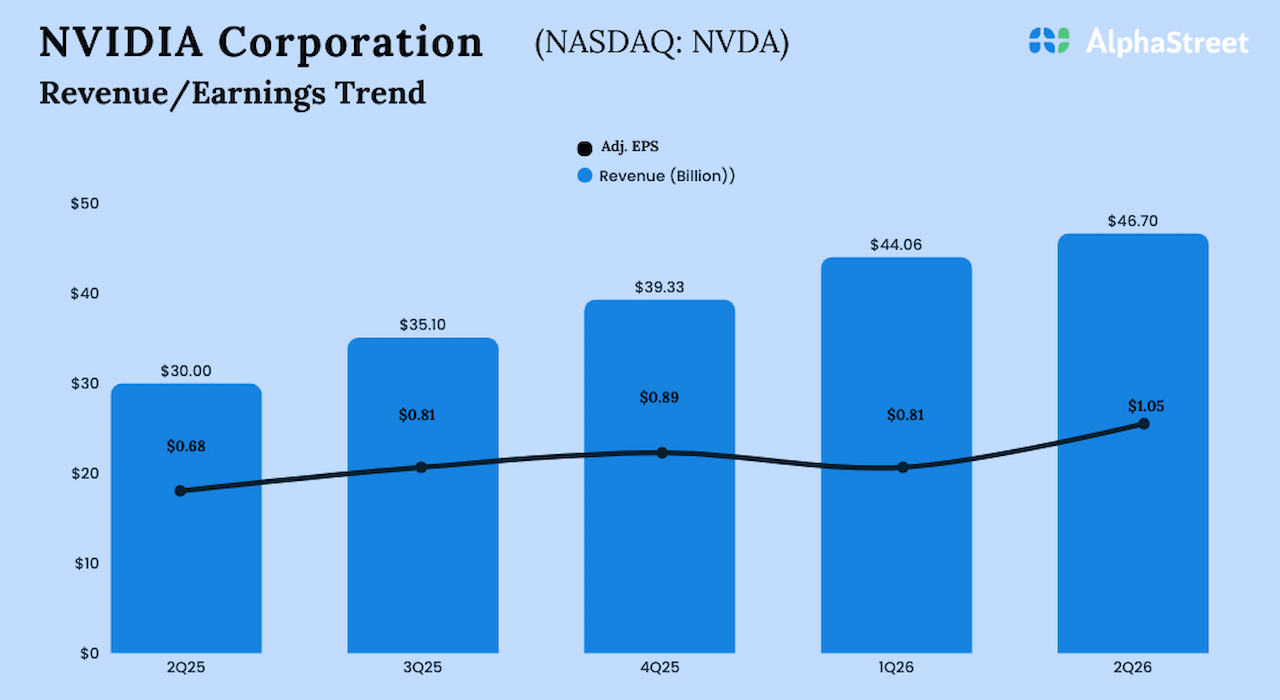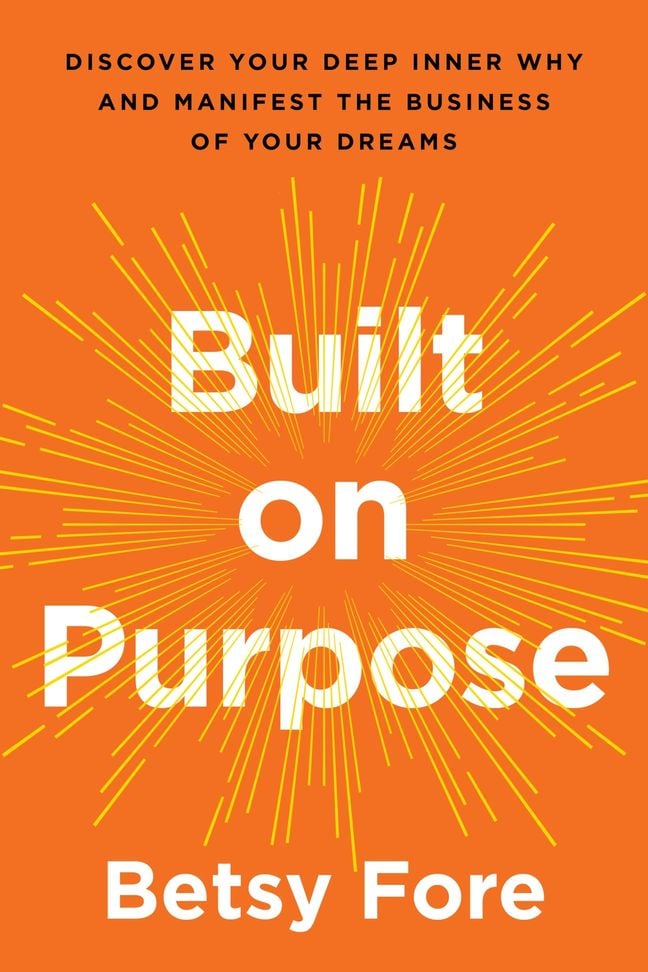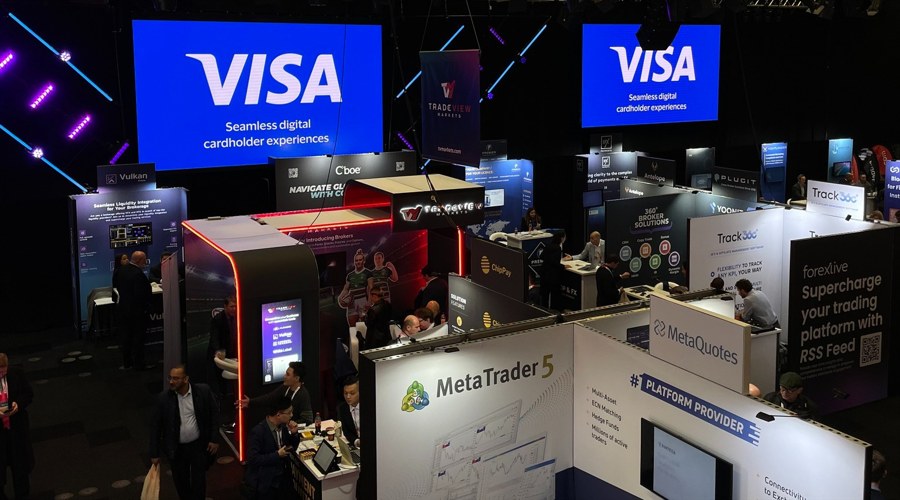Episode #454: Rex Salisbury, Cambrian – a16z Partner Turned Solo GP on Why He Believes Now is the Time for Fintech
![]()
![]()
![]()
![]()
![]()
Guest: Rex Salisbury is the Founder and General Partner of Cambrian Ventures. He was previously a founding partner on the A16Z fintech team.
Date Recorded: 10/12/2022 | Run-Time: 1:01:18
Summary: In today’s episode, Rex shares an overview of Cambrian and the benefit of the fintech community he’s built over time. We touch on the three-body problem and how it relates to venture capital, the competitive advantages of different VC’s, and why he believes you can be consensus and win in venture capital.
Comments or suggestions? Interested in sponsoring an episode? Email us [email protected]
Links from the Episode:
- 1:34 – Intro
- 2:20 – Welcome to our guest, Rex Salisbury
- 7:43 – Launching a fund as a solo GP
- 14:48 – ETF Architect episode
- 15:36 – How the three body problem relates to the future of venture capital
- 26:58 – Defining what FinTech means to him
- 32:16 – How the opportunity set looks today
- 34:22 – The ways in which Y Combinator has raised the quality of what founders know when starting a new company
- 37:09 – Why is Rex only investing in the US?
- 39:01 – Rex’s request for startups
- 43:41 – How hard it is to run and nurture the community he’s built?
- 50:38 – How much of the outcome of his investments has been correlated to his conviction in them at the time he invested?
- 55:45 – Rex’s most memorable investment
- 57:54 – Learn more about Rex; LinkedIn; Twitter; cambrianhq.com
Transcript:
Welcome Message: Welcome to “The Meb Faber Show,” where the focus is on helping you grow and preserve your wealth. Join us as we discuss the craft of investing and uncover new and profitable ideas, all to help you grow wealthier and wiser. Better investing starts here.
Disclaimer: Meb Faber is the co-founder and chief investment officer at Cambria Investment Management. Due to industry regulations, he will not discuss any of Cambria’s funds on this podcast. All opinions expressed by podcast participants are solely their own opinions and do not reflect the opinion of Cambria Investment Management or its affiliates. For more information, visit cambriainvestments.com.
Meb: Welcome, podcast friends. We’re back with another fun show today. Our guest is Rex Salisbury, a founding partner of the a16z FinTech team and is now a solo GP with Cambrian Ventures. In today’s episode, Rex shares an overview of Cambrian and the benefit of the FinTech community he’s built over time. We touch on “The Three-Body Problem” and how it relates to venture capital, the competitive advantages of different VC models, and why he believes you can be consensus and when in venture capital.
One more thing before we get to today’s episode, whether you listen on Apple Podcasts, Spotify, or another platform, go ahead and leave us a review. We love to read them, and it helps people find the show. Please enjoy this episode with Rex Salisbury.
Meb: Rex, welcome to the show.
Rex: Hey, Meb. Great to be here. Thanks for having me.
Meb: Where’s here? Where do we find you today?
Rex: I’m calling in from the Presidio in San Francisco, where you can find me most every day. So I both live and work here, spend a lot of time running. Great backyard to have but still be in the city.
Meb: Give us a quick Rex background, because, you know, you left the warm, fuzzy confines of one of the most storied and successful venture capital firms to go out on your own, which, I imagine, is a little exciting but nerve-racking at the same time. Give us a little origin story on you, how you came to where you are.
Rex: Yeah. So I kind of accidentally ended up in venture capital and helping start the FinTech practice at a16z, Andreessen Horowitz. That was my initial foray into venture. But how I ended up with this one, so this is Cambrian Ventures, early-stage FinTech fund, which I’m deploying out of now and started January of 2022, actually takes me kind of way back in that, at one point in time, I was an investment banker, learned a lot, totally hated it, quit my job, moved across the country. I was just excited about the opportunities for, like, building new things in financial services, specifically around using technology. So I was like, “I want to work in Fintech,” right? But I’m an investment banker, so I’m getting offers, but it’s like, “Come work in finance for this, you know, financial technology company.” It’s like, “I don’t want to work in finance. Like, I want to do something else.”
So I taught myself to code, even done a coding boot camp. So I came out here, gotten a few offers in those kind of nebulas, like finance ops roles at early-stage companies, and I was like, “I don’t want to do that.” So instead, I actually went full in on the engineering side of things, and I joined a company called Sindeo, working as kind of lead back and engineer a billion of fully automated online mortgage pre-approval with one of the co-founders of SoFi, Andy Carra, who’s my CTO there. That company was a failure, really great learning experience, great team, had an amazing time. One of the things I built there was this, like I said, fully automated online mortgage pre-approval thing, like Rocket Mortgage, push button, get mortgage. I built out kind of the APIs to power a similar experience like that. And I was like, “Oh, this is really…” this was circa 2014, “This is really cool.” Like, mortgage, one of the most important financial products in a consumer’s life, it’s incredibly painful to get a mortgage, right? It takes, like, three months. It’s incredibly costly. There’s all of this documentation involved. Like, “Let’s try and figure out how we can simplify that process.” And so I thought we’d build some pretty interesting technology about that.
But meanwhile, across, like, all of financial services, you have these software engineers and founders working on other problems. And I’m in San Francisco now, I was like, “I want to talk to those other people who are working in the other corners of financial markets to kind of build new things that are cool and exciting.” And so I started convening people on building community for founders, you know, product managers, software engineers to talk about things they’ve built and launched in FinTech.
So 2015, I think it was, we had our very first meet up in downtown San Francisco for Cambrian, the community. And we had, presenting there, my team demoing the application we’d built at Sindeo, we had the Plaid team demoing their API, and then we had a third team demoing an application they’d built largely on top of Plaid. And so, from that kind of core kernel of just, like, interesting people talking about things they built in FinTech, Cambrian, the community, really took off and, basically, by 2019, had, you know, 15,000 newsletter subscribers, 5,000 meet up remembers, I was running monthly events in San Francisco and in New York, had 2 annual summits, quarterly jobs fairs, just a whole lot of stuff going on, and I was getting a lot more energy from doing the ecosystem-level work. And I’ve been pulled into investing and advising companies over the years. And so I actually quit my job, went full time on Cambrian the community to run it as an events business. So the plan was to raise a small fund.
But then a16z reached out to me, Andreessen Horowitz, said like, “Hey, we’re starting a FinTech practice. We love what you’ve done. Like, you understand financial markets from your time in banking. You clearly understand, like, how to think about an ecosystem and kind of marshal people and resources through your time building community at Cambrian. We’re going to start a FinTech practice at a16z. Why don’t you join us and help build that out?” And so I was the first partner who was brought on externally there, with the understanding that I could stay for two years, help build out that practice, and then, if I wanted to, go out and still go and do my own thing. And so, spent two years there, focused primarily on the investing side of things, had an amazing experience, great team, amazing opportunities to see, you know, one of the big names in venture capital, go from, when I joined, call it 100 people, they’re going to end 2022 at about 500 people, similar kind of scale in terms of AUM as well.
But really, what it came down to is, like, I’ve built this community, I had this kind of really deep connection to, like, early-stage FinTech ecosystem, and by being independent, I get to leverage a lot of those relationships and networks that I’ve built that are specifically, you know, well-designed for supporting companies at kind of their earliest stage. And so I focus exclusively on investing in kind of first money and checks for companies with U.S. go-to-markets, usually, like, a 500k initial check. And then the fund itself has kind of a community flavor to it. And then we have, as LPs in the fund, a lot of the top founders in the ecosystem, from places like SoFi, Plaid, Betterment, kind of the list goes on. We’ve got 20+ folks across all sorts of verticals in WealthTech, to InsurTech, to real estate, you know, financial software, the list goes on.
Meb: So there’s a couple of jumping-off points, I think, are pretty interesting before we kind of get in deep into FinTech and what you guys are looking for. The first being, you know, obviously, you have an awesome pedigree at a16z, but building the community ahead of time, I imagine, is a pretty unique, invaluable asset when deciding to launch a fund. Would love to hear a little bit of that because the way you’ve decided to do this is, essentially, as a solo GP, right, and you can confirm that. I don’t know how big your team is now, but I’m assuming it’s not 500. So, you know, Rex, Incorporated. Is that something also that feels like may not have been possible 10, 20, 30 years ago? I don’t know. Like, it seems like a more modern invention that is a little more recent. So tell us a little bit about the decision to be solo, as well as kind of the community aspect, if that was a big help in launching this effort.
Rex: Yeah. So the first answer, the one question, I am a solo GP, and that’s the plan for the foreseeable future. I do have a lot of really great folks supporting me, though, in various capacities. And then, in particular, even though I’m a solo GP, I draw a lot from the resources of the community I’ve built. So I already kind of mentioned the 20 founders, our LPs in the fund, also have a lot of connectivity that are folks in the venture ecosystem. And one of the other kind of big community apparatus I’ve built up recently during the pandemic is we have a Slack community of 1,500+ FinTech founders, and so I think, as far as I know, the largest kind of online group of FinTech founders out there. And that, so I’m constantly in contact and communication with lots of folks in the ecosystem, whether it’s our portfolio companies, those 1,500 founders in the Slack, the founders who are LPs in the fund.
So, like, yes, I am solo GP, but to your point, like, having a community apparatus is incredibly helpful for me and the work that I do and incredibly helpful for me to kind of marshal the resources of that community to support our portfolio companies. But, you know, the community is also something that I’ve built to create value for the ecosystem just because I was passionate about the ecosystem, like interacting with other folks. And I started it six years ago, and so now I get to kind of use some aspects of that to what I do in my day job as an investor, but I’m still focused on trying to just create general value for the ecosystem by facilitating a lot of connectivity between all the different players within FinTech.
I think FinTech is a really interesting category, you know, say, versus enterprise SaaS or consumer software, where it’s, by nature, more highly networked, in part because it’s so highly regulated, right? If you’re building a financial product, you’re going to need certain kinds of licenses, legal counsel. You’re going to need various infrastructure providers. You’re probably going to need other partners and channel partners. And so there are all of these reasons why founders within the FinTech ecosystem have arguably more need to kind of connect with each other than you do if you’re building a consumer social app, right? Like, if you’re building a consumer social app, you don’t necessarily need to talk to all of the other consumer social app people, because there’s not necessarily a whole lot you can do together. But in FinTech, it’s, like, highly collaborative in terms of, you know, why you might need to be working with other folks in the ecosystem, and so I think why a community approach really matters.
And then you also had…so I mean, like, could you do something like this, you know, 30 years ago? No would be the very short answer. But even for me, personally, I don’t think this is something I would have done even four or five years ago. I think one is LP appetite and interest in backing solo GPs. That’s kind of a new category of thing. So that wasn’t there. Two, even if you did have the appetite and the interest, the idea that if you wanted to fundraise for a fund, you could do a lot of that remotely, which I did, that just wasn’t in the water. I’ve got two kids. I’ve got a five-year-old and a two-year-old, and so, like, the idea of spending, you know, months on a plane just going to talk to people is…I probably would have just said like, “Thanks, but no thanks.” So LP appetite for solo GPs. The idea that community matters, I think, is kind of a new idea. It’s something that I’ve been doing for a long time but I feel has become more hot or topical just in the last two years, in part because one of the big things people talk about in Web3 is how Web3 is a community-oriented movement, right?
So LP interest, the ability to raise remotely, and then, also, you know, and this is where kind of the FinTech side of things is, just some of the infrastructure that allows you to operate firms. There are a lot of different platforms you can launch a fund on top of now, right? There’s AngelList, there’s Sidecar, there’s Carta, and those are kind of more holistic platforms, to some extent, although you still need a lot of other support. There are also things you can use for, like, doc management, rights management. Like, there’s all of this stuff that makes it more feasible as a solo GP to have, like, great tooling that makes it a little bit easier and faster to get up and running than it would have been, you know, several years ago.
And I think that’s really exciting, and you’re seeing a lot of people experiment with different models in venture. I think one of the most notable ones being that of the solo GP because you break down a venture firm, like, the most atomic unit is an individual partner. And if you think about you’re going to have a Nobel laureate on your show, I think, later today, but another great economist, Ronald Coase, you know, the Coase Theorem, the theory of the firm is that a firm is something where the internal transaction costs are less than the external transaction costs. And so, if you actually make it easier to create venture firms because of kind of the substrata of both the infrastructure that exists as well as the kind of, like, LP appetite and sources of capital that exist, you should expect to see new ways of being within the whole kind of venture ecosystem. And that’s why it’s going to be fascinating for the next decade to see how venture capital, as an ecosystem, evolves, given all of these kind of shifting components in terms of how you can think about building a firm.
Meb: So did you end up building the fund on one of these websites you mentioned or partners, or did you do it a little traditional way? How did you go about it?
Rex: Yep, I run a traditional fund on top of the AngelList platform. And so they help me out with a lot of the back-office-oriented stuff. And then I also have other folks that I brought in who are not necessarily technology-oriented partners but in part because there are more solo GPs and more emerging managers now that are folks who are well-designed from a service perspective to support that. So I have an outsourced COO, CFO group that is kind of well-tailored to working with those platforms and specializes in doing and supporting emerging managers. So both are, like, technological components, but also, even the service and people-oriented components have gotten more developed for that kind of thing.
Meb: Yeah. One of the cool parts is, in much the same way that a lot of the terms of startup funding has been templated, you know, the fund side now is too. So it’s, in many ways, like, pretty turnkey, which is great to see. We joke about this a lot in our business with launching an ETF is, in many of the same ways now, a lot of the frictions and cause. We’ve done shows with friends from ETF Architect, as well as Tidal and others, that kind of lets you white label or launch a fund pretty simply. Because if you look back on it, 90-some% of the terms are pretty standard. I mean, so then, it’s just getting the plumbing…
Rex: It’s crazy how much everyone at every level of financial services pays lawyers to do basically the same thing. Like, it’s just insane.
Meb: Yeah. There’s still a lot of fad out there, because that’s my, probably, number one line item as well, that very, very personal comment, with everything that’s SEC-registered tends to get expensive with the legal team. We love our group. We actually use a San Fran…old-school San Fran business. So shout out to Shartsis Friese, as well as Morgan Lewis. Great teams. All right. So let’s talk a little bit about the venture space, in general, and then we’ll dig into FinTech and kind of what you are doing specifically. We’ve talked about a couple of trends, you know, going on in VC over the past decade or two. What else is on your mind, as you look around the VC landscape, that seems to be shifting? There’s a lot of money floating around the past 15 years, which I think is great. Venture is at its core still, kind of a tiny asset area relative to other areas of kind of traditional asset management. When we say a lot of money, you got to put it in context. What are some perspectives on venture, in general? Any other thoughts on the space? I know you were talking a little bit about the three-body problem concept, which, for those who haven’t been familiar, is a science fiction work that I’ve read. Or at least I read the first one. I haven’t read all of them. I hand you the mic, what’s some general thoughts? What’s going on in the world of VC?
Rex: Yeah. And have you read that Frank Rotman’s Three-Body Problem, which is his kind of take on equilibrium points in venture capital? I don’t know if you’ve come across that or not.
Meb: Let’s hear it. I’ve seen it, but explain it for the audience.
Rex: Yeah. So first, I’ll just say…we’ll dive into that one a little bit, but I think, to your point, 100%, venture has gone from being this very, very small, very, very cottage thing. Like, I think one of the very first funds raised was, like, Kleiner in the ’70s, and it’s them driving around…you probably know the story better than I do, you know. It’s a $6-million fund, maybe, in 1970 that they’ve convinced everyone of what this thing is and kind of gets going from there. You can go even further back, talking about, you know, like, whaling and those kind of models. But today, even 10 years ago, like, I’ve got a chart up in front of me for capital raised by venture funds in the U.S. in 2012, $23 billion, which is, like, a rounding error when you look at other sectors of capital markets, even private markets.
And then, in 2021, it was an all-time record, 150 billion, which is pretty meaningful, but they’re still, you know, compared to other markets, it’s not huge. But we’re getting to the point where it is…you know, a16z, Andreessen Horowitz, my old employer, in the, like, a couple of years that I was there, went from about 10 billion in assets to now, I think it’s north of 50 billion. So you’re starting to get to this point where you’re getting institutionalization of what was a cottage industry. Well, the kind of landscape for how you can, you know, launch a fund, build a fund, what that can look like, is changing. And so all that is to say we’re in this really interesting period where it’s becoming a real asset class, and it’s kind of up for debate as to, like, what exactly will it involve into asset institutionalized. And what it’ll look like is probably very, very different, and it’ll probably be different players who specialize in different kinds of things.
So I think it’s a good point to talk about kind of “The Three-Body Problem,” which is a piece written by Frank Rotman, who’s one of the founders of QED, which is a FinTech specific firm, and he argues that there are kind of four stable equilibrium points that he sees as the likely places where venture firms can kind of specialize and be enduring, at least for this kind of next phase, maybe 10 years. And one of those are, like, scale partnerships, the, like, a16zs, the Insights of the world. Two are kind of the more early-stage specialists and more of the kind of boutique type approaches or early-stage generalists, specialists, I think, is what he calls them. And that would be like, you know, the Benchmarks or the First Rounds. And then another would be kind of non-consensus alpha folks, people who really just go out and find new things that are quite a bit different. And then the fourth would be kind of solo capitalists, solo GPs who have very distinct brand value, very distinct value proposition for the founders.
And so those are kind of the theories he sees. And the reason and how he gets to that conclusion, and you know, I actually interviewed him recently, talked through some of this, is you can kind of look for historical antecedents for other areas that have gone through periods of change. I think one of the interesting areas to talk about, and love to hear your thoughts on this too, Meb, are, like, the big asset managers that we know today, Blackstone, BlackRock, Vanguard. Three very different firms, but they all were born around the same time in the 1980s as asset management, especially for public market equity, granted Blackstone is more of a private equity platform. They all got started at the same time because there’s that same period of institutionalization, And I think we’re at that period for venture capital today where, as it goes from being a cottage industry to an institutionalized asset class, you’re going to see these bursts of these kind of big mega-firms. In certain ways, I think Andreessen Horowitz has a very good likelihood of being one of those kind of defining that category. And history doesn’t repeat, but it does rhyme, and so there will be some similarities in terms of how the rest of it shakes out.
And so this is where Frank talks through other kind of historical antecedents, things like the consulting industry, used to have a ton of kind of boutique consulting firms, and now we have, like, the big ones, like Bain, McKinsey, BCG, etc. You look at accounting firms, used to have a ton of boutiques, now you’ve got the Big Four and a long tail of other ones. And so something similar is probably going to shake out in venture capital where you have some really big names that build out huge presences, but then you also have this kind of other sets of players who can exist within the ecosystem. So that’s kind of a little bit of the general taxonomy of the three-body problem but I think a little bit of what is going on in venture right now. I, of course, am biased, but I’m excited about the ability of solo GPs to go out and deliver value, and the kind of pitch there is that, dollar for dollar, these should be the most helpful people on your cap table because they’re usually highly network specialists who deliver very specific value to you and your company for a thing you need.
So my pitch, at Cambrian, for example, is, look, I’m highly networked into the space, but not just myself, my connectivity into the community and the ecosystem that I’ve built allows me to marshal…I’m kind of accessed to a network of networks, you know, the 20+ founders, our LPs in fund, the 1,500+ founders who are members of the community, and just the fact that I’m a non-lead also means that I’m able to collaborate with multi-stage venture funds and lots of other people in the ecosystem in a way that’s kind of unique relative to other players. So that’s a little bit, I think, a breaking down of some of the taxonomy of venture, I’d say. But I love to hear your thoughts too, Meb. I’m sure you’ve thought about it a little bit.
Meb: I largely agree with you, and we’ve been talking about this for a long time in the traditional public space, said, “Look, the base case now in the public spaces is zero,” meaning zero fees. You can get a global ETF portfolio.
Rex: It’s slightly negative. Isn’t there one that you get paid now, or is it…? I guess Fidelity has the zero, right? So Fidelity has some zeroes.
Meb: It’s a couple of basis points, but once you include short lending revenue, you’re essentially getting paid on a portfolio, which is amazing. Best time ever to be an investor. It’s super cool. It’s also the easiest time ever to light all your money on fire and blow it up with dynamite, you know, with access to trading really anything. So, to me, that’s, like, the competition, and there’s still tens of thousands of funds out there that charge a lot more than zero, right? And so, again, it comes back to what is your value proposition. And so you have a lot of these legacy assets where people are paying a lot more than zero, but they, essentially, are just getting beta. So they’re getting the S&P 500, as an example, for stocks.
Rex: It’s insane. And I know you’ve mentioned this, but how many S&P 500 ETFs there are that charge, like, 1%? Like, they just take a long time to die. So that’s probably going to be true in venture too that there will be these legacy platforms that are clearly dying, but it’s going to take a while because these are 10-year funds, they have deep relationships with LPs. Like, you know, it can take a while, even if it’s very clear they’re on their way out
Meb: Yeah. I mean, look, and one of the best things you can do as a newly minted GP is have a good first fund or get a little lock. But that kind of christens you…there’s been a bunch of academic research, also in the VC space, on this that it christens you as someone who really knows what they’re doing and gets a much longer leash on future funding and fundraiser. But, like, let’s say even if you’re a storied firm that’s done well, and you hit a couple of rough patches, like, you still get a fair amount of time before that goes away. And so, venture and private equity have such long lock-up periods or just kind of time to fruition, some of these being well over 10 years, 15 years sometimes. But, yeah, so the asset on the public side, I think, the traditional players, you know, there’s people…money tends to get cozy where it is until disturbed. And so the people that are only selling these when someone dies, when there’s, like, a taxable event, divorce, or something really bad happens, like a big, fat, nasty bear market, but it doesn’t go back, you know, to a lot of the traditional no-value-add incumbents.
So I think you’re spot on and that you’re going to have…I mean, this has always been true, but it’s becoming more true, you have to have a very clear value proposition going forward. In the public space, if you can charge more than zero, I haven’t seen as much of the pricing pressure in you all’s world yet, or at all, maybe there is, but it seems like a lot of the argument in VC is that, “Hey, you’re shooting for this top quartile. And if you can get it, you know, you’re going to have a huge spread on the performance.” So anyway, I agree with you. So we try to be…our tagline when we talk to people we see, “We want to be weird, concentrated, and different,” you know, which some people like and some people really don’t like. But you kind of have to, in my opinion, if you’re going to charge more than zero.
So you have this situation where you got these giant players, like a16z. You have this new rise of solo GPs. You mentioned a few of your kind of calling cards and value adds. So let’s kind of, like, walk through the process, you know. So you raised a fund, 28 million, I think, and how many names are you guys targeting per fund? Is it 10, 20, 100?
Rex: Yeah, I’m targeting about 30 and deploying over about 2 years, and that comes down to being a function of both how many great entrepreneurs do I think are out there in the ecosystem that I want to be backing and how many entrepreneurs do I think I can actually support well. And my commitment to entrepreneur is to be very involved for the first kind of year to two years, maybe even a little bit more of that company’s lifecycle when access to those networks and relationships really matter and could help them find opportunities they might not discover on their own. Once you get through your…I’m usually first check in, your next round of funding or your next two rounds of funding, usually, I have a larger team, you have a sense of product market fit, you know where to look, you have a team that could build out those relationships, and at that point…and you have a board. And at that point, having someone like me is less helpful, because you’ve kind of…you haven’t figured everything out, but you figured a lot of the unknowns out, right? And you know kind of where you’re looking, whereas where I can help is, like, identify the opportunities you might not even have thought to look for early on, as well as, like, one of the big things I can help out with is, you know, helping with subsequent fundraises, so.
Meb: When you say FinTech, it means a lot of different things to a lot of different people. So for you, when you’re kind of under this umbrella, like, what does it mean? What are you guys looking for in this FinTech ecosystem? Are there certain areas of it that you think are more applicable to kind of your wheelhouse and fund investments?
Rex: Yeah, totally. I think one of the things criticisms of FinTech originally was, like, “Is it even a category?” Like, this was, like, four or five years ago. There really hadn’t been any exits. And then you had Credit Karma and Plaid. Of course, Plaid and Deel end up going through. So it’s, like, okay, now, it’s kind of a category. I think now, the problem is, like, it’s so broad of a category, it’s like, “What does that even potentially mean?” And I think what I’m excited about is just kind of the next layer down of financial services, as well as kind of intersectional areas. So if you look at FinTech as it intersects with, like, HR tech, FinTech as it intersects with health care, I’ve done one investment that’s doing kind of a vertical software play in health care. If you look at InsurTech, there’s kind of a bunch of stuff that hasn’t necessarily been done there yet.
If you go down to the next level of just software and data orchestration across all the platforms, there’s a bunch of interesting work to be done there. Digitization of banking software I think used to be kind of poo-poo’d by a lot of FinTech investors, like, “Oh, you’re selling software to, like, the incumbents. You’re going to die.” And that’s, like, kind of learning that, “Oh, they probably aren’t going to die, and they will have, like, a really big role to play in certain areas of finance for a very, very long time.” So, like, that’s a whole another category. Commercial real estate lending is another one where if you…I spent a lot of time with consumer, residential, mortgage, real estate, very complex, difficult ecosystem. Commercial real estate lending and certain segments, just as big, even less technology.
It’s an area where most people haven’t spent a whole lot of time who are technologists, but a few teams, actually, because the FinTech ecosystem has gone so big, have spent really meaningful time building data platforms in that space or other kind of things, so they now understand that problem both as…you know, there are lots of people in the financial and real estate markets who do understand it, but there aren’t that many of them who are also technologists. Now, you have people who are both.
Meb: And so you would consider these to be, like, for the traditional vernacular, pre-seed?
Rex: Yeah, pre-seed is probably the best way to call it. We call it pre-seed or seed.
Meb: And so what’s the range on sort of the market caps and checks you’re writing for these, just for perspective?
Rex: Yeah, they range from kind of 5 to 15 caps, generally, on a post-money basis. And just commentary in terms of how the market has evolved when I first started out very early in 2022, I would say the window, again, skewed, but the whole window of valuation ranges was from 10 caps to 50. And now, it shifted down to what I just mentioned to you. Pricing is finally starting to correct at the pre-seed.
Meb: Good to see, because I’ve been waiting. I feel like, and I don’t see it like the way you do, obviously, as much, but I try to keep tabs on it. And certainly, it was kind of going bananas the last few years. And then I saw it start to kind of correct earlier this year, but it’s good…I mean, it’s good and it’s bad.
Rex: Seed is the longest. It’s, like, the most insulated people. If it’s your first round of funding, your choice is always just to wait. Whereas if it’s your second, like, you have to raise, and same for later-stage companies that are burning through cash, and so this is the part of the market that takes the longest to adjust. And we’re in a little bit of a weird situation right now where deals are taking longer to get done, in part because that’s traditionally just how deals have usually taken three months for people to go through diligence, etc., but in part because there’s a little less clarity in the market as to what the kind of general market clearing price should be.
If you think about selling a house in a hot market, you just look at, like, the couple of houses down the street that sold in the last month, and you’re like, “Okay, this is how much this house should sell for. Now, if you’re going out and you’re raising, well, a lot of people didn’t raise, like, new money, there are a lot of extensions over the summer, not as many people raised new rounds over the summer. And then your last comps are kind of from Q2, so you’re like, kina, “What is the market clearing price?” So, like, A, I’m going to take longer in diligence, B, there’s less certainty about what exactly the price should be. And so things are a little bit weird right now as they reset.
So it could be, you know, things continue to go even lower or it could be they kind of start to stabilize or even go up because of something else, I’m sure, you’ve talked about. Like, there are record amounts of dry powder in the ecosystem right now and a lot of these large multi-stage funds. Venture capital fundraising for 2022 was still at an all-time record, even though the markets have slowed down, right? There’s a little bit of a lag effect there. And a lot of these multi-stage funds do want to deploy into seed or pre-seed, and they almost don’t know how to write small checks. And so what that might mean is there might just be this kind of permanent kind of stability for the earliest rounds that companies raise, but we’ll see. We’ll have more clarity on that in the next couple of months.
Meb: Yeah. Traditionally, this is sort of, like, a half millioncheck, a millioncheck, or what’s kind of the ballpark for you guys?
Rex: Yeah. I usually write a 500k initialcheck.
Meb: Great. So tell us a little bit about…how’s the opportunity status looking for you? You know, your process usually just sort of, as a solo GP, you have a unique asset, which is this network. Are most of the deals coming just through friends, through people you know? Like, what’s your process like, and where do we stand now as far as opportunity status at overwhelmingly tons of great founders? Is it pretty targeted? What’s the world look like for you?
Rex: Yeah, I’m really excited because I’ve been…in the last two months, I would just say, the number of really highly qualified founders I’ve seen has actually been higher than it’s been in the past, and I think part of that reason is if you are starting a company from scratch right now, you’re not doing it because it’s, like, this cool, sexy, easy thing to do where you can, like, walk out of your, like, brand name FinTech company and get a $5 million term sheet in a week from a company or form a venture firm that hasn’t done a whole lot of diligence. It’s, like, it’s more work, and this is something you’re really compelled to do, and you probably have a unique reason why you’re doing it. And so I just feel like, generally, both kind of a quantitative view or qualitative view that these founders I’ve seen now are really great and then quantitative, just the number of them that I am seeing and I’m kind of actively engaged with is higher now than it has been in the past.
In terms of how I come across, there’s a lot of stuff, right? So I run the Slack community, so I see a lot of folks who are joining there at the very earliest stages. I actually do co-founder matching about twice a year, which is mostly just a way for people early on to have lots of conversations, help ideate, and then sometimes, also, you know, find their co-founders. That’s another area. The 20+ founders who are LPs in the fund, you know, they send folks to me who are, early on, even if they’re not raising because I can be very helpful in helping them find co-founders, helping them refine their ideas, helping them do customer validation and discovery, so that’s another source. And then I have a lot of people reach out, call, on LinkedIn, and on Twitter, and through the website. So there are kind of all these different sources that come together. And so sometimes it’ll be someone I’ve never met before who reached out, called, or other times, it’ll be a team that I’ve known for a really long time through the community and just through the ecosystem.
Meb: Yeah. And it seems, as an outsider, and you can probably comment on this, but just the advent of a lot of the Y Combinator, Techstars, accelerators over the past, I don’t know, decade-plus, has raised the quality of at least what a lot of the founders know about kind of starting a company. Is that accurate or inaccurate statement? And you know, they don’t seem as green as to just understanding how this whole game works.
Rex: Yeah, totally. So, yeah, going from zero to one is not as much of a dark art anymore, right? Like, so much ink has been spilt about, like, how to do this. A lot of that ink has been spilt by Y Combinator, right? Like, you can go to their startup school, like their curriculum. It’s essentially open-source at this point. They’ve also done a great job of cutting out some standardized documents that allow you to quickly raise initial rounds of funding, the YC Safe, etc. So, yeah, I think the zero to one just from, like, understanding what that looks like, even if you’re a first-time founder, you can get way more up to speed. But then, think about the fact that there are now, you know, call it, 1,000 unicorns. Like, there are just also so many repeat founders in the venture ecosystem that the number of people you can talk to to learn from is greater than ever before.
Oh, and by the way, you might be one of those repeat founders. Like, if you look at the Cambrian portfolio today, a lot of folks actually have helped start companies before, so. But I think this is actually kind of an interesting question for what role does YC play in the ecosystem, or accelerators. I think, before, it made sense for lots of founders, especially almost every first-time founder, to go through YC, or through YC itself, because there’s the curriculum, there is the network, there is the signal associated with it. Whereas now, what I see for most sophisticated FinTech founders, whether they’re first-time founders or repeat founders, is they’re like, “I don’t really want to go through YC, nor do I need to, because one, their terms aren’t as attractive as I can find elsewhere, two, I kind of already know the curricular stuff. I have my own specific networks that are relevant to FinTech, and their networks are great, but, like, it’s kind of a different type of experience. And so I’d really rather raise from people on better terms who have very specific domain expertise and connectivity.”
And so, for me, like, generally, the types of companies I am backing have not even considered going through Y Combinator because they’re kind of like, “I don’t need that,” right? But that’s also because their ecosystem is larger than ever before. So there still are lots of people for whom YC is a really good fit, but it also means, now that the ecosystem is larger, there are some people who just don’t need that, which is why you have other kinds of firms who are doing other kind of specialization, etc.
Meb: You also…Cambrian is such a great word for this, but you start to see this, I feel like, in other geographies. You know, you have a successful company, and it mints a bunch of millionaires, And all of a sudden, those millionaires can now angel invest or start new companies, and it just kind of populates this whole new ecosystem of founders and angels which kind of propagates, which this whole sort of snowball trend seems to reinforce itself, which is kind of like the Silicon Valley being exported to the entire world, which seems like a pretty amazing trend. Like, it’s really exciting to watch it happen in Africa and all sorts of Pakistan and other places now. Are you guys U.S.-only for now?
Rex: I’m U.S.-only for now, and the plan is to do that forever. So I think there are amazing things happening around the world. Just concentrating and doing one thing well is important. The U.S. is the largest unified market, with good rule of law in the world. And a lot of what I do depends on networks. So if I invest in a lot of the great FinTech companies in the U.S., there’s lots of opportunities for cross-pollination across the portfolio. If I start flying to different continents, there’s a lot less inter-portfolio connectivity. And, oh, by the way, like, my time only scales so well, and international flights cost a lot of time, so.
Meb: Yeah. And plus, you got two under five. My wife said, you know, “I should make you a deal. You can still travel once we have a kid, but we get to pick and choose on which trips we go with you on.” So oddly enough, they would agree to go on trips to Dublin or Ireland instead of, you know, and I’m not throwing shades, Cincinnati or somewhere in the U.S., Chicago even. And I say, “Really, we’re going to take a two-year-old to Dublin? Fine.” It’s a fair deal. So, okay, let’s talk a little bit about…you can take this one of two ways, it’s up to you. Since a lot of the portfolios are in stealth, you could either talk broadly speaking about some of the things you’re seeing that are pretty cool or ideas or sub-industries of FinTech, or you can take, you know, what are you looking for that you haven’t seen, you know, some areas or some things that you have said, “Man, I’d love someone to be doing XYZ,” or you can answer both.
Rex: Our very first investment we did was in OatFi. OatFi, like I mentioned, is doing embedded lending for B2B platforms that do invoicing, etc., so like a business version of BNPL or factoring would be another way of thinking about it. But it’s this embedded lending component. If you think about being a small business, everyone knows cash flow is king, but especially if you’re trying to get a sub-$100,000 line of credit, it’s just very hard for you to go to a bank and get underwritten for that, because they’re going to take a long time, it’s going to be a very costly process, it’s not going to be very powerful for them. So a lot of small businesses extend their excess capital due through very kind of expensive sources, like factoring, but even that is often, like, a separate area and could be quite expensive. If instead the lending is embedded into your everyday kind of flow, like, the supplier who you’re working with, when they invoice you, there’s just a button you can click to get extension of debt. And that supplier themselves has a button on their end where they can accelerate account. That’s a very interesting way of just seeing business lending embedded into the regular flow of business as opposed to pulled out and obstructed away into a bank branch, right?
So that’s, like, A, just a very big and interesting trend, and there are also so many more vertical software platforms. Like, let’s say you’re a vertical software for someone to run a hair salon, or a dental supplier, or a trucking company, you’re going to need to use, like, you know, Stripe to accept payments, but you’re also probably going to need to use some kind of software to do the invoicing, and then, as part of that, you probably want to monetize to some extent through lending, well, you can just integrate with OatFi, and OatFi, on the back end, has various capital provider that they build out debt facilities with who can then provide the credit for your supplier. And you actually get a little bit of a rep here. So now, you can monetize through financial services through, like, you know, you can get a take rate from your, like, integration with Stripe. You can also get a take rate from your integration with OatFi and the credit you’re extending. But you, yourself, don’t have to be a payment process or a balance sheet, a lender. And so that idea of embedded finance, especially as it relates to the idea of people building vertical software businesses that monetize your financial services, is, like, a really, really big idea, I think, generally.
And then, just a little bit…I think this is interesting in understanding how, like, the Cambrian community works. So I originally met Mike, the founder of OatFi, when…actually, I originally didn’t meet him. He joined my Slack group, and I didn’t talk to him for, like, months. I’d tell him to join. I, like, send a general welcome note, which is something I always do. And then, like, a few months later, someone mentioned to me that they were raising, and I was like, “Oh, that sounds interesting. Like, let’s go on the phone.” And the first time we get on the phone, Mike’s like, “Rex, it’s, like, great to connect with you.” Like, “Oh, by the way, our very customers, and we met through, like, the Slack group.” And I’m like, “That’s great.” I have done no work, and the first person you’re going to go live with is someone you met organically through the community. He’s like, “And one of our first infrastructure providers,” so someone they used to do something, like, loan management stuff, they’re like, “That’s also someone we met.”
So here’s someone I haven’t even talked through who’s interacting with the Cambrian community who has now gotten first customers, infrastructure support, etc. And then I ended up investing, like I said, in the pre-seed, and as part of that, brought in, actually, one of the founders from our 20-founder LPs to co-invest in that round, because they’re, like, good, kind of overlap there. Also found some other folks who get involved. And then, subsequent to that round, did a lot of work in terms of, anytime someone joined the Slack community or I just interacted with someone else in their early-stage ecosystem who could conceivably want to embed lending into their platform, just send them over to Mike. They can have a collaborative conversation…are also very early-stage founders who are trying to figure out how to build their business, and they want to monetize through lending, but they’re like, “That’s a lot of a lift.” And I think that’s on my roadmap.” And Mike’s like, “Look, we can help you bring that forward on your roadmap by making it a lot easier because of how our platform works.”
And so, like, just kind of the informal connectivity over time. And so they actually have a few customers that are going live that they’ve kind of met through the Cambrian network. And then, like I said, QED ended up preempting their subsequent round of funding. They just did their announcement.
Meb: How hard is it to run that network? And what I’m thinking of is traditional, a lot of communities. You get people misbehaving, whether it’s, you know, just being general social media turds but also spamming and marketing. And, like, how hard is the community you have? Are you, like, a strict parent, one strike and you’re out, or, like, how do you monitor and just run that whole show?
Rex: Yeah. Communities evolve over time, right? The Cambrian community I’ve run has evolved over time. Started originally as just kind of monthly in-person events in San Francisco. We actually haven’t done an in-person event of that sort for quite a while now. Now, a lot of my community work is more virtual and through, like, the Slack group. The Slack group today is about 1,500 members. They’re all founders. They’re all people who know what it’s like to be in a similar situation. And so I’ve had very, very few instances of what I would classify as poor behavior. I do worry that as it starts to scale again, like, maybe that’s something we’ll have to think about. But so far, I’ve been trying to keep it kind of generally constrained. So I do think about that, but I’ve been fortunate that I feel like people who are founders and builders, generally, like, know and respect what other people are going through, and therefore, try to behave accordingly. And that’s generally been my experience.
Meb: Yeah. Well, when you’re ready to host an L.A. happy house, we’ll sponsor it. So you can come on down when you need some sunshine in San Francisco, and we can do a meet up.
Rex: Next year, I plan to do that a few times, in 2023. So I think L.A. is on the map. Probably, we’ll also do some in New York and maybe in places like Salt Lake City and other kind of FinTech hubs that I know lots of great entrepreneurs in.
Meb: You were going to mention another startup that has come out of stealth.
Rex: Yeah. The other one is Keep Financial, and so this is kind of FinTech at the intersection of HR tech. If you think about being an HR organization, especially in a post-COVID world where things are highly remote, and now, employees are living in all 50 states, there’s just, like, a lot of things for you to manage. And a lot of things you manage as an HR department are around coordinating compensation and other kinds of, like, financial closing compliance for those employees. So there’s just a lot of stuff at the intersection of FinTech and HR. It’s an area I’ve been pretty excited about for a while. My wife, as one example, leads, like, go-to-market ed, Guild Education, education as a benefit sold into Fortune 100 employers. And they’ve done fantastically well. So into that general area, which I’ve been looking at for a long time, met Rob and Kathryn, or re-met Rob and Kathryn, who are the founders of Kabbage, the small business lender. Their new company is called Keep Financial. They’re a bonus management platform for employers.
So this is an illustrative example. Burger King is not a customer of theirs, but let’s say you’re Burger King. And you want to hire 10,000 frontline workers, and you want to issue them a $5,000 signing bonus. Well, you could do that, and then, like, the people sign up, they get the money, and then they, like, don’t show up after the first day of work or something. And you’re like, “Well, that didn’t work very well.” But we’re actually in the tightest labor market, still, for certain service sector industries, even as, you know, sort of the macroeconomic indicator shift, the tightest labor market in, like, the last 70 years. Employers are desperate to recruit and retain talent.
I love the value proposition that Keep says, because they’re like, “How do you recruit and retain talent?” It’s, like, you pay them. And you pay them through bonuses. And under the hood, these bonuses, this is kind of the financial product, but they’re structured as forgivable loans that vest over a certain period of time. So now, when I give you this $5,000 signing bonus, it vests over a certain period of time. If you leave early, it can be forgiven. Like, a portion will be forgiven, and then the rest can be kind of repaid at zero interest over some period of time.
So now, you, as an HR leader, have a new tool in your toolkit to think about, “How do I recruit workers?” By the way, the same platform you can use to retain them. You can issue spot bonuses or retention bonuses. And so, if you end up being a very large employer, like, it actually gets pretty complicated to think about how you would want to build out this program at scale. You’re like, “Well, how much should it be? Like, what about if you’re this level versus that level? What should be the vesting period? Like, how do I actually disperse the funds? How do I actually manage, like, the state-level registration because this is a loan product?” Like, all of those are actually pretty complicated questions. Like, how hard is it for a company to pay bonuses? And you’re like…well, you start to think about it, you’re like, “Oh, it’s actually kind of hard not only to do it just from a functional perspective but to do it from a way that actually drives the outcome that you want.”
And so that’s why I think they’re a really interesting company, because one, it’s a great team. Like, Rob and Kathryn have built several businesses together before. Kabbage they sold to Amex, I think it was around, like, a $500 million exit. But they’re a team that’s worked together incredibly well before. They can materialize a team. They also have deep connectivity into the kinds of leadership teams at the types of employers they would want to sell to as their initial customers, as well as their kind of, you know, super enterprise clients in the future. And so this is a great example, I think, of…this is not a FinTech company in a sense that it’s really an HR solution that happens to have a financial product that’s underpinning it, and you never would have had someone, a team, that was able to think about how you build this product but then use it for a very particular solution.
That’s something that’s because of everything that’s happening and just the awareness and the quality of the entrepreneurs, but then, also, they have a banking partner under the hood who’s helping them, you know, power a lot of this, which, 10 years ago, there are 0 banking partners, right? Fast forward today, there’s, like, 30 to 40 to 50 banking partners, plus 20 banking as a service platforms. So this is where the name Cambrian kind of comes in, right? There’s been this explosion of the basic building blocks of financial services that are kind of reconstituted through technology that people can combine to new and novel ways to tackle problems. So I think Keep is a great example of, like, a really great team, FinTech at the intersection of something else, in some way that few people are actually thinking about. Like, this is kind of a new…there really isn’t anyone else doing this right now. But once you hear it, you’re like, “Oh, that’s pretty interesting and exciting,” right? So those are our thing, two companies and two great stories in terms of thinking about what the next generation of really great FinTech companies can look like.
Meb: Yeah. I mean, it’s crazy. I tweeted earlier this year. I said, you know, I went through a process of getting a mortgage, and it was the absolute stupidest process I’ve been through in, like a decade. And I’m an in traditional asset management. I mean, we used to have to fax in our trade. So I’m well aware of stupid processes, and I’m like, “I cannot believe this in 2022.” You had a tweet a while back. Listeners, you can follow Rex on Twitter. He’s great at posting charts and other stats.
Rex: Lots of charts. Lots of charts.
Meb: You were complaining about…you’re like, “I had to pay 20 bucks to send a wire,” or something, “And I called in, and they waived it.” And you’re like, “Can we just waive this in the future so that I don’t have to call in?” They’re like, “No, you have to call in every time. We felt we’ll waive it if you’re calling it.” Like, are you getting me? Like, what is wrong with this? As you look back at your time at a16z, it’s probably less today because it’s so new, you know. I’ve heard you talk about kind of thinking about consensus, anti-consensus when looking at kind of ideas and founders. But also, I wonder, in your experience, how much of the outperformance, if you look at kind of traditional deals you’ve seen and been involved in, were at the time you made the investment? So you checked the box for yes. So the portfolio that you’ve seen. How much of the eventual outcome was related to initial conviction, you know? So excluding the ones you didn’t invest in, but just the ones that, like, you said, “Okay, these were in our orbit.” Is there any correlation once it hits the yes button, or is it a lot of randomness in the outcome as well?
Rex: You can be very highly convicted of some businesses, but yeah, I think, like, for the absolute extreme outcomes, it’s very hard to know a prior. So if you look at, like, Slack, one of a16z’s big early wins, they literally were a different business that pivoted into another business before doing incredibly well. I think you can often underwrite certain investments to, like, a pretty high floor, but that’s actually completely useless. You get a really experienced entrepreneur who’s built and sold a business in the past, saying, “Okay, the floor for this business is $200 million,” but that’s actually completely useless in terms of driving what you need from a venture return perspective.
I think there is an interesting thing around, like, what kind of investments do firms tend to do over time, and if we go back to the, like, free body taxonomy of, like, scale firms, I think, if I think about…venture is a funny category because, usually, you have to be non-consensus and write to win. Whereas venture, arguably, you can kind of be consensus, and because only one person gets to do the deal, you can still actually deliver outperformance if consensus-oriented deals still delivered good enough returns.
And so, when I look at a16z and other large firms and you think about what kind of deals are easiest to get partnership buy-in, you have this kind of unactionable force where hot deals, deals that get a lot of term sheets, are the one the partnership gets most excited about. Because if you do, like, really smart thinking and come up with, like, a clever thesis, you have to communicate complex nuanced ideas across a variety of people. If you bring in a deal with five other term sheets from your three biggest competitors, including your three biggest competitors, you just immediately have, like, activation and interest.
And so I think there’s this interesting thing where, over time, large shops become more consensus-oriented, because that’s just the easiest way to get deals done. But ironically, in venture, that’s the one place where that strategy can still deliver reasonable returns, arguably, versus every other market where it’s just you had the buy button and there’s a bit of spread in, like, you’re competing against everyone else in the ecosystem. So that’s going to be a little bit interesting to see how exactly that plays out over time.
Meb: Yeah. I wish I could go back a decade ago and start marketing all the deals that I’ve invested in, which I think is over about 350 now, and say, “Here’s Meb’s…you know.” It made the yes criteria, but scale of 1 to 10, here’s how confident I am. Because I look at the outcomes, and I don’t think there would be any correlation. And oddly enough, like, I love reading all these…I get the behavioral side that people are trying to do that are often like, “This is a hot deal. It’s closing. It’s 10 times oversubscribed.” And often, I’m like, “This is actually…” I’m a rarity, I assume, but, like, this kind of repulses me in many cases. Like, I don’t find, like, a lot of the ones where I look at, I’m like, “Wow, no one’s interested in this.” And then looking at the outcome over the years…anyway, I wish I could time travel, but.
Rex: Yeah, no, totally. But this is why you can also have multiple strategies that went in venture markets. You can be a consensus shop that always wins and does hot deals and probably delivers good enough returns. Probably the best returns are by non-consensus folks who find those deals no one else believes in. Those should be hard to underwrite though because those are usually concentrated portfolios with a high degree of zeroes and some real bangers. And so, then, for you, as the limited partner investing in funds, for example, you’re like, “Was that genius or luck?” And like, to what extent is that? It’s almost easier to back the consensus shops, which probably just delivered good enough returns, than it is the non-consensus folks.
So you have to…it’s an interesting question to think about, like, you know, where LPs should be thinking about allocating capital and what kind of LP should pick what kind of firm, because you have to be pretty sophisticated to try and back the non-consensus stuff. I’m lucky, I get to do a little bit of both, right? I’m not super unconcentrated, but I’m not super concentrated. I can, as a non-lead check, invest alongside tier one firms who are leading deals and have done that on many occasions but also invest in deals that are not alongside tier lead firms, or sometimes I commit, and then it turns out, like, they are interested, and so they come in. But you can do a little bit of both in terms of my contract, which is a little bit different, so.
Meb: Rex, what’s been your most memorable investment that you’ve been involved with that could be either as your career as a VC or something totally unrelated, good, bad, in between? What you got?
Rex: Most memorable investment, I got a full ride to college, and so I was part of that, had some money post-graduation and used that to buy a house that I lived in.
Meb: Was this a drone league sponsorship? Were you a football lineman? What was the story?
Rex: I was not. This was just a general academic and leadership thing. So I was a Belk scholar at Davidson College, which is, like, the Davidson version of the Moorhead or the Jefferson but much less well-known than those two other programs.
Meb: Is this the Charlotte Davidson?
Rex: This is the Charlotte Davidson. Steph Curry, yes, was a classmate of mine, if that was the next question.
Meb: I did a baseball camp there once upon a time, many years ago. Beautiful, beautiful campus.
Rex: Great campus. Great school. Great community. So anyways, yeah, I bought my first house right after graduating, and it was, A, a good investment but mainly just a really good learning experience. You’re a college graduate, so you’re like, “Oh, I studied economics. Like, let’s build a model to understand what the returns for this house look like for me as a college senior. Oh, let’s go and actually get a mortgage, right? Let’s go out and then actually see what it looks like to own and operate an asset over a period.” I was actually living in it for a while too, which…that’s kind of an interesting arbitrage opportunity for a variety of other reasons. And I still own it today, and so I get to track it.
And then, as you get this interesting academic exercise, was it a good investment? And you, like, benchmark it to the S&P, and you’re like, “It’s pretty good.” But then you benchmark it to, like, REITs, and then you benchmark it to single-family REITs, and then you’re like, “Well, what about my time? What about the fact …?” Like, it’s just an interesting lens, and I’ve refinanced it a few times, and it’s been during the period where the rise of single-family rental REITs has been a thing. So it’s just been a great learning experience in terms of understanding how all of these markets work. And then it’s also a reminder of just how complex finance is, because, like, just to answer the very basic question of “Was this a good investment?” just trying to figure out what the right benchmark should be is, like, a very hard question. And then, not to mention, like, all the stuff around time, etc., so.
Meb: You were adulting, would be the 2022 phrase you hear more often, long before it was cool, as a young college grad. You don’t see that too much. Rex, best place people will find you on all the various places. Where do they go if they want to check out what you’re doing, interested in your fund, all that good stuff? Where should they go?
Rex: My name is relatively unique. So if you just Google Rex Salisbury, you’ll probably find me on both LinkedIn and Twitter, or you can go to those platforms specifically. And then the website is cambrianhq.com, and there, you can subscribe to our newsletter, find some of our other social profiles. And if you’re a founder, you can also find the link to join the Slack community.
Meb: It was a blast, man. Thanks so much for joining us today.
Rex: Yeah, thanks so much for having me, Meb. Really appreciate it.
Meb: Podcast listeners, we’ll post show notes to today’s conversation at mebfaber.com/podcast. If you love the show, if you hate it, shoot us feedback at [email protected]. We love to read the reviews. Please review us on iTunes and subscribe to the show anywhere good podcasts are found. Thanks for listening, friends, and good investing.






































